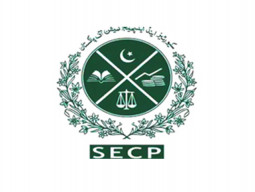
ISLAMABAD: The Securities and Exchange Commission of Pakistan (SECP) has finally presented to the policy board its investigation report on alleged manipulation of trading in shares of gas distribution companies in the stock market following increase in unaccounted-for-gas (UFG) ceiling by the regulator, ruling out insider trading by stock brokers.
The SECP had completed work on the report in May this year, but it was dumped and not shared with the policy board.
Earlier, the SECP asked its investigators to initiate a probe in January this year, which took about five months to reach conclusion. The report, spread over 150 pages, assesses trading patterns of all investors and brokers in the market before and after the change in UFG from 5% to 7%. Following detailed examination, it concludes that no manipulation has taken place.

In 2011, SECP Deputy Director Shazia Baig claimed that the trading pattern indicated manipulation of trading in shares of Sui Southern Gas Company (SSGC) and Sui Northern Gas Pipelines Limited (SNGPL). However, SECP’s senior management disagreed with the preliminary report of Baig and a detailed review was ordered which also did not endorse the findings.
She later presented her report to the National Accountability Bureau (NAB), alleging that senior SECP officials were attempting to cover up the findings pertaining to losses worth Rs42 billion to the government. Now the detailed investigation also stresses that there was never any case of market manipulation.
According to the fresh report, while examining trading data, the investigators found that share prices of SSGC and SNGPL rose mainly because of accumulation of shares by six enterprises – National Bank of Pakistan (NBP), NIT-State Enterprise Fund (NIT-SEF) and four provident/gratuity funds of SSGC Employees Funds.
NBP had started accumulating shares in SSGC and SNGPL much before the order of Oil and Gas Regulatory Authority (Ogra) for increase in UFG level, the investigators wrote in the report.
About purchase of shares by NIT-SEF, the investigators learnt through the minutes of NIT’s investment committee that decisions on investment in SSGC and SNGPL shares were taken on day-to-day basis and were based on an expected increase in profits of the companies due to an anticipated rise in UFG rates and change in treatment of operating revenue along with expected loan of $250 million to be granted by the World Bank to both companies.
The investigators noted that this information was available publicly, evident from the review of research reports of various brokerage houses obtained by investigating officers.
The report reveals that the AKD Group was a major seller of shares when NBP, NIT-SEF and the SSGC Employees Funds were the key buyers, resulting in matching of orders. However, no evidence could be found that AKD Group’s trading pattern was based on prior information about investment decisions of NBP, NIT-SEF and the SSGC Employees Funds.
The report says that on September 22, 2010 AKD Securities (Private) Limited sold 15 million shares in SSGC in off-market trading to IGI Finex Securities at Rs17.50 per share – a rate which was quite below the prevailing market price. Prior to the sale, these shares were pledged with MCB Bank.
This trading pattern does not indicate that AKD Group members were engaged in insider trading as the shares sold by the group were bought before the Ogra decision on September 24.
Moreover, shares were sold in off-market trading at a price much lower than the prevailing market price.
The AKD Group also sold shares on September 29, 2010 and afterwards, following the Ogra decision on SSGC’s revenue petition on September 24, 2010.
According to a statement submitted by officials of the AKD Group, shares in SSGC and SNGPL were sold in order to address the liquidity problems faced by the group. This claim was supported by relevant documents including copies of letters from banks about overdue markup against financial facilities.
The report highlights only a minor case of front running by National Bank. It says the timing of NBP’s buy order and AKD’s sale order is similar. Market experts say it is a normal practice in large transactions to match buy and sale orders on the KSE.
They also claim that there was never any possibility of market manipulation as change in UFG was public information with various brokerage houses preparing reports on its day-to-day developments.
Published in The Express Tribune, July 23rd, 2013.
Like Business on Facebook, follow @TribuneBiz on Twitter to stay informed and join in the conversation.
COMMENTS (1)
Comments are moderated and generally will be posted if they are on-topic and not abusive.
For more information, please see our Comments FAQ























































If there was no substance in the initial report from Shazia and her findings were based on mere market trends why so much time was waisted out there. Does it not mean SECP need a formal structured training process and enforcement of internal policy for public matters?
I will suggest Shazia might acted in good faith given the economic environment of country in general and SECP in particular.
However this now needs a strong governance board and organisational structure to ensure investigation process is transparent, technically sound and accountability of reports drafted by Junior staff member is rolled out in hierarchical structure of SECP business.